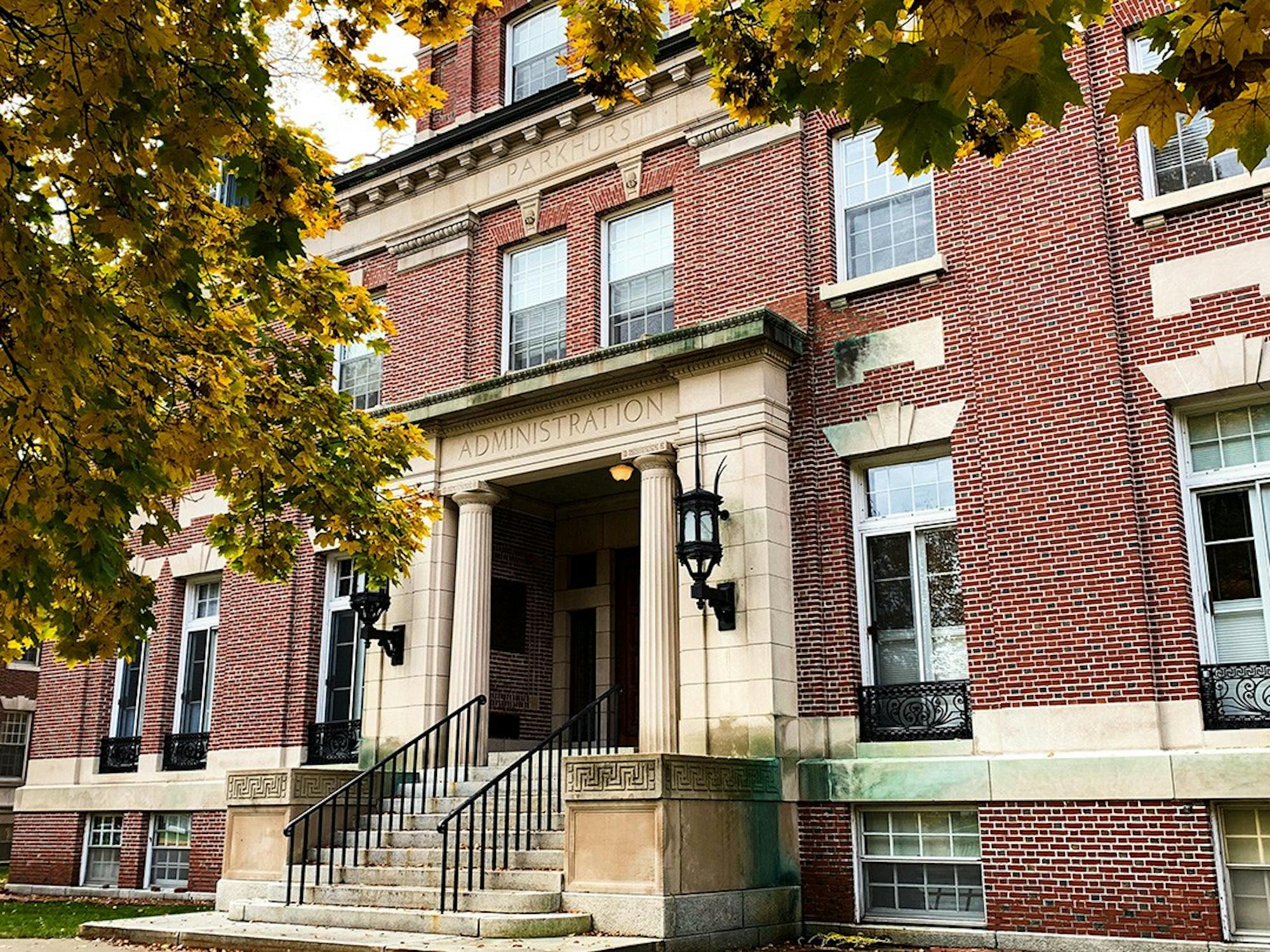On May 20, the Faculty of Arts and Sciences voted 183 - 163 at a meeting in the Hanover Inn to censure College President Sian Leah Beilock for her response to the pro-Palestinian protest on May 1. More than half of the arts and sciences faculty cast votes.
While the measure has no official consequences, the tightness of the vote signals that faculty remain divided over Beilock’s response to May 1 — a narrow majority, 52.89%, supported the censure motion. English professor Aden Evens called the faculty division on campus “tragic,” adding that Beilock “has lost the respect of many” faculty members.
“The faculty are horribly divided among themselves,” Evens said. “We can’t possibly have a successful institution of higher education without being able to trust each other.”
In her remarks to the faculty at the event on May 20, Beilock acknowledged tensions among the faculty — adding that the division has brought her “profound sadness.”
“I stand here knowing many of you have turned against each other in this divided time,” she said.
Dean of the Faculty of Arts and Sciences Elizabeth Smith said there were “escalating tensions” among faculty over the past several months and that faculty gatherings had a “disturbing tenor.”
Nearly 500 people gathered on Zoom on May 6 after the arrest and discussed the College’s response to the protest, according to the Valley News. Spanish professor José del Pino, who attended the May 6 meeting, said he thought a number of faculty members treated Beilock improperly at the meeting.
“I thought that many faculty members had been quite unfair and quite aggressive in their attacks on the President, our first woman President at Dartmouth,” he said. “The Dartmouth community should know that many faculty members … are in favor, and we are in support of her actions.”
Tensions remained visibly high during the May 20 meeting. After religion professor Christopher MacEvitt introduced the censure motion, faculty members were given the opportunity to speak to the group — either in favor of, against or in remaining neutral toward the motion.
Faculty queued up in line for each option throughout the discussion period, with many remaining in line until a show of a hands vote to move to the voting period was called, after which they took their seats.
Divisions among Dartmouth’s faculty have extended beyond the last two faculty meetings. In the aftermath of May 1, several faculty members and groups wrote letters to Beilock’s office, published letters to the editor and guest columns in The Dartmouth and gathered on the Green for a faculty walkout on May 2, according to past reporting by The Dartmouth.
On the morning of May 2, the six House Professors addressed students in an email explaining that some faculty opposed Beilock’s response. In an email statement to The Dartmouth, Allen House professor Janice McCabe, writing on behalf of the group, explained that they believed they had a “duty” to respond “quickly” to the protest.
“On the evening of May 1, four of the six of us were at the Green,” McCabe wrote. “We were shocked and horrified to encounter the show of militarized police force on our campus.”
Some professors chose instead to write directly to Beilock’s office. On May 4, history professor Udi Greenberg and creative writing professor Jeff Sharlet wrote a letter to Beilock and Provost David Kotz on behalf of Jewish faculty, condemning the administration for their response on May 1. The letter was signed by 27 faculty and emeriti faculty.
In an email statement to The Dartmouth, Greenberg wrote that Beilock “has not acknowledged receiving it, nor has she reached out to the signatories as a group.” Greenberg added that he believed Beilock decided on May 1 how some views were “worthy of protection” while others were a “threat to campus safety.”
German professor Yuliya Komska, who also signed the letter, wrote in an email statement to The Dartmouth that she was “shocked” by Beilock’s “claim to act in the name of the entire Jewish community’s safety.”
On May 3, the history department published an open letter expressing their “anger and dismay” at the administration’s actions. In a written statement to The Dartmouth, history department chair Cecilia Gaposchkin wrote that, “as historians,” the department’s faculty possess unique insight into the importance of free expression.
Gaposchkin also wrote that the history department called a department meeting on May 2, “which was robustly attended.” The professors collectively drafted the letter and used a secret ballot to decide whether or not to send it. The motion passed with “no dissenting votes,” she wrote.
Other faculty, however, have publicly endorsed the President’s response. On May 6, 70 faculty wrote in favor of Beilock’s actions in a letter to the editor published in The Dartmouth. According to anthropology professor Sergei Kan, the letter’s primary author, the submission was in response to “harsh and unfair attacks” by some faculty against Beilock’s “handling [of] the May encampment controversy.”
In a separate letter to The Dartmouth, economics professor David Blanchflower wrote that he “felt intimidated by those who tried to take over the Green.”
“We have seen clearly over the last few weeks that, too often, encampments do not foster dialogue,” he wrote. “They prevent it.”
On May 7, a group of faculty members wrote a letter to the editor in support of institutional neutrality, defined in the University of Chicago’s 1967 Kalven Report, a landmark paper in institutional neutrality, as “respect for free inquiry and the obligation to cherish a diversity of viewpoints.”
In an email statement to The Dartmouth, psychology professor Peter Tse wrote that he circulated the neutrality letter among faculty to “reaffirm” Dartmouth’s commitment to free speech.
“To foster free speech all sides must be allowed to speak, but behavior that undermines the forum of free speech itself must be reined in,” he wrote.
Kent Friel ‘26 is an executive editor at The Dartmouth.




